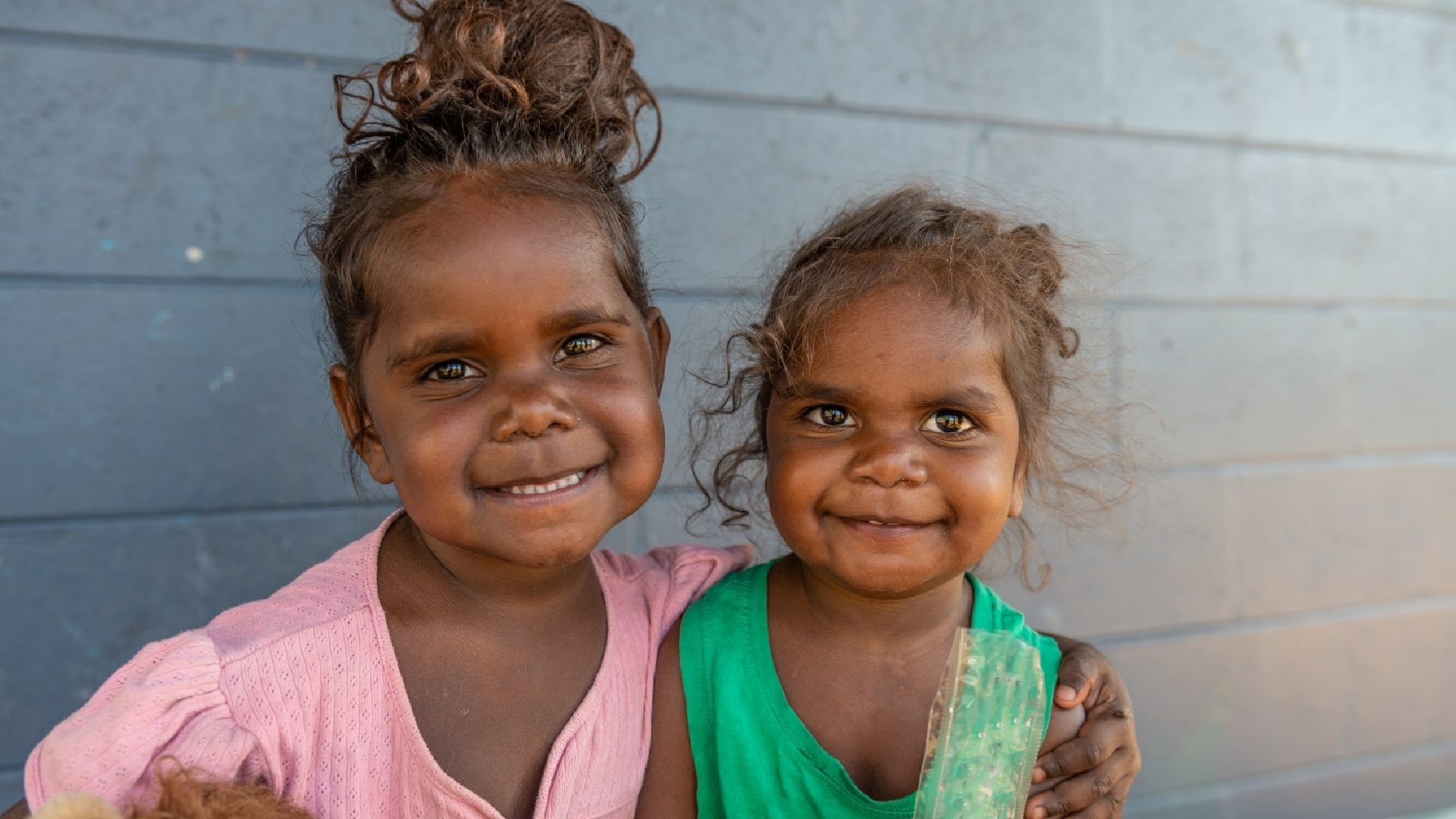
National Aboriginal and Torres Strait Islander Children’s Day on 4 August is an important day—a time to celebrate the strengths and culture of Aboriginal and Torres Strait Islander children, as well as the families and communities that have provided love and care for them, growing them up strong and safe in their cultural traditions, for thousands of generations.
This day is also a chance for us to learn about the crucial impact that culture, family and community play in the life of every Aboriginal and Torres Strait Islander child.
For Aboriginal and Torres Strait Islander children, safety, wellbeing and development are closely linked to the strengths of their connections with family, community, culture, language, and Country.
Read some inspiring stories below, from our programs and from team member Ashley Muller. Mercy Community, sharing the pride.
Ashley Muller, Foster and Kinship Care Practitioner, Toowoomba, tells his story…
I just wanted to share a story from my own childhood, in the hope that other children (particularly children in out of home care) are given similar opportunities to discover their culture.
As a child growing up, it felt like my mother Tracy was torn between being a proud Aboriginal woman and that of hiding it away as her some of her family members ‘took the wrong path in life’, and I think she was deeply ashamed by their actions.
When I was young, most of our culture was ‘by chance’, if we happened to be at her mother’s (my Nan’s) place and she would be doing some painting and dancing with our young cousins, we would participate.
Myself and my siblings were never too sure whether to join in and I don’t recall being encouraged by my Caucasian father and aboriginal mother (whom are great parents and I love dearly) to participate in cultural activities and events within the family, at school or in the community.
My Uncle Johno Speedy worked for a tour-guide company in the Northern Territory for many years and when I was 11, he brought the empty tour bus to Toowoomba as he wanted to take our extended family on a bus trip to Bollon Qld.
I remember that my parents, siblings, uncles, aunts, and cousins jumped on the bus, which was (I didn’t know it at the time) where my connection to culture really took precedent.
After many toileting stops, which extended the 5 hour drive out to 8 hours, we arrived on the banks of the Wallam River at Bollon.
Uncle Johno’s rules were that we all had to sleep on a tarp under the stars and catch our own food as he wanted us to experience what it was like for his father, aunts and uncles and grandparents growing up on the banks of the river.
After two hours of hunting and fishing (without success), we were glad that the adults had actually brought food for us.
Over the next few days Uncle Johno told us stories about our ancestors, how they lived, how they weren’t allowed in the town of Bollon as they weren’t seen as “people” and what life was like for them.
From my view, this is where I could witness first-hand where my indigenous family roots came from and I have felt a strong connection ever since.
I believe this was also a “tipping point” for my siblings and parents, where some healing and acceptance was done and our connection to our culture has been able to flourish.
Every couple of years from that first trip, we returned (and continue to do so) to Bollon to feel that connection and healing from where our ancestors once lived and are proud Aboriginal people.
We are very privileged as Uncle Johno and his partner have semi-retired where it all began in Bollon, where they own and operate Nullawokka Art Gallery and also offer cultural walking tours and traditional foods.
For me, it is my hope that the young people in the “system” through no fault of their own are able to have an experience, not too dissimilar to mine, so they know where they come from and are able to keep that in their memories.
Adam’s story
Adam* had only just turned nine when his mother died. His dad was unable to care for him and he had no contact with his mum’s relatives. His childhood had been difficult. Frequent trauma had left Adam with poor social skills and a limited ability to regulate his emotions. He had moved through several foster families after each placement broke down and, now aged 15, Adam found himself in residential care with three other young people. He was unable to cope with a full day of school, and was put on managed attendance from 9am to 11am. Any longer, and his behaviour would escalate. Adam saw his dad for an hour and a half, once a fortnight, under government supervision.
For Adam, the joy of being with family was an experience for other people.
His mum was gone, and he couldn’t live with his dad.
When Adam was introduced to the Mercy Community’s Kinnected Program in Toowoomba, a glimmer of hope appeared. With a little work, we were able to locate Adam’s mother’s side of the family, and his mum’s older sister, Auntie Yvonne*, agreed to care for Adam. Adam began having regular contact with his maternal aunts, older cousins and his maternal grandmother, getting to know the family he thought he’d lost.
One day, Adam returned to residential placement after a weekend sleepover with his kin. With a big grin on his face, he was bursting to share his happy news: “They said I’m just like my mum!”.
Adam moved in with Auntie Yvonne in June 2020, and began high school, gradually at first. It didn’t take long for Adam to be attending school five days a week. His Aunt recently remarked “So far, I feel that things here with Adam are progressing nicely … He is a cheeky, funny, smart young man and with guidance he is starting to come out of his shell and not live in his own world as much”.
Adam and Auntie Yvonne continue to be supported by the Mercy Toowoomba Intensive Intervention Support Program Team.
Mercy Younger People Participation Project
This project encompasses young people from each program within Families and Young People Services at Mercy Community. As well as seeking to strengthen the voice of younger people in Mercy Community decision making, the participation project aims to help light up the spirit of Aboriginal and Torres Strait Islander younger people who we support. Our goal is to establish a means for younger people to have real ongoing say in program and policy decision making at Mercy Community.
*Names have been changed.



